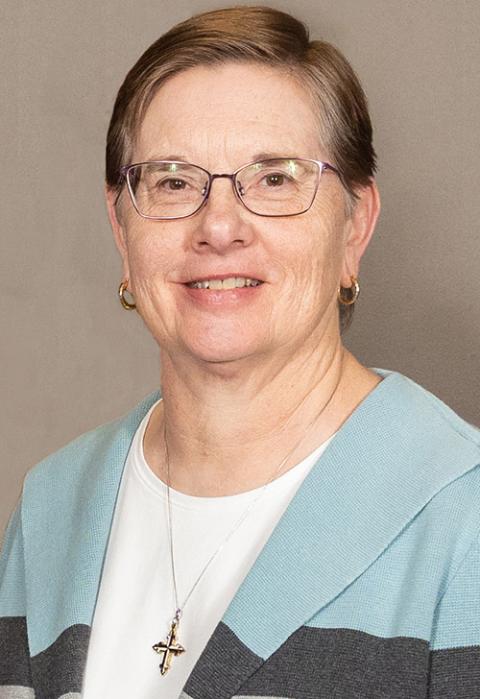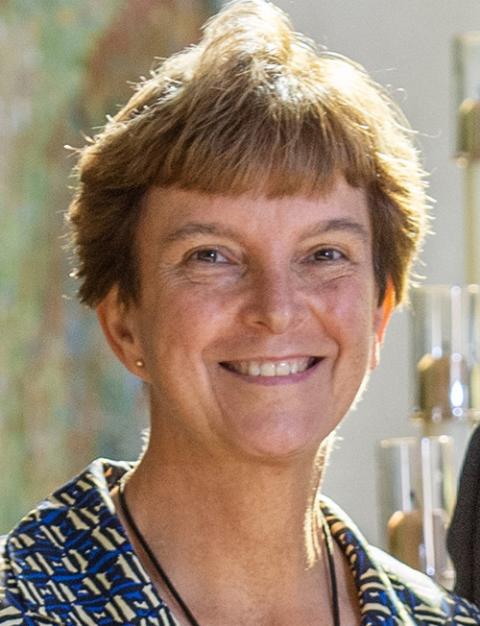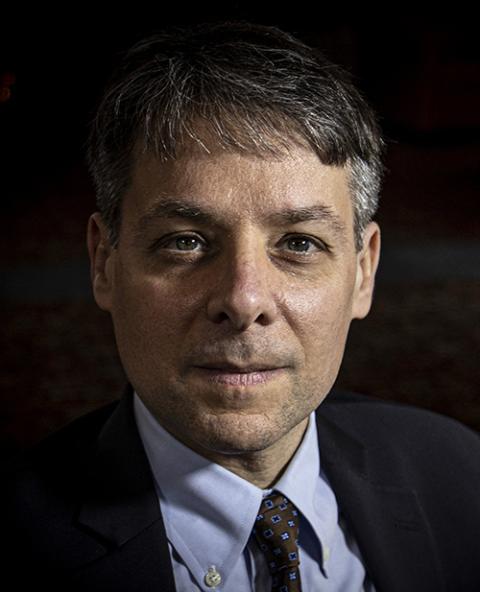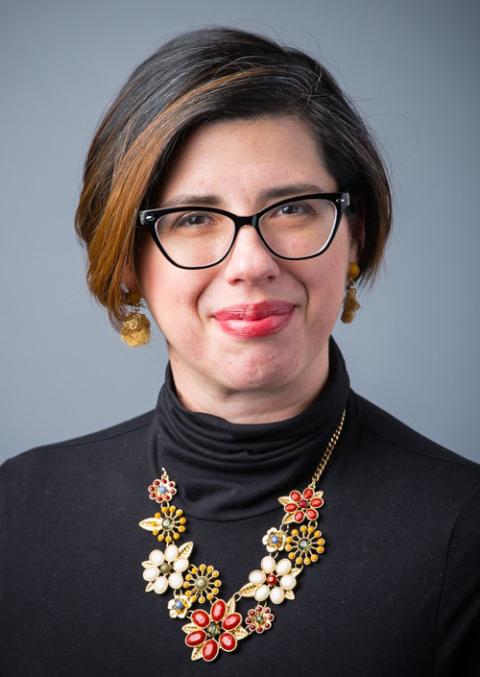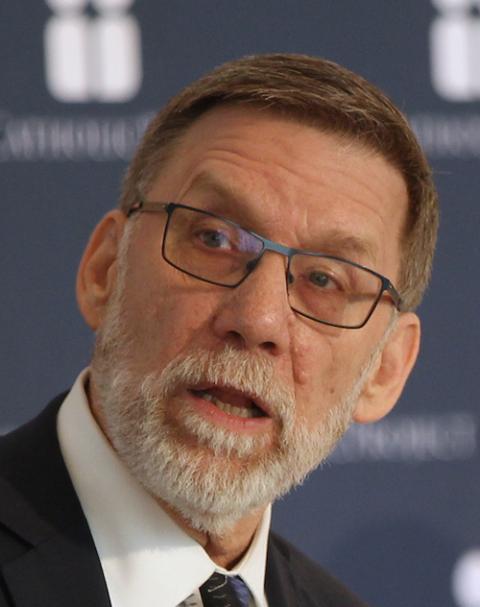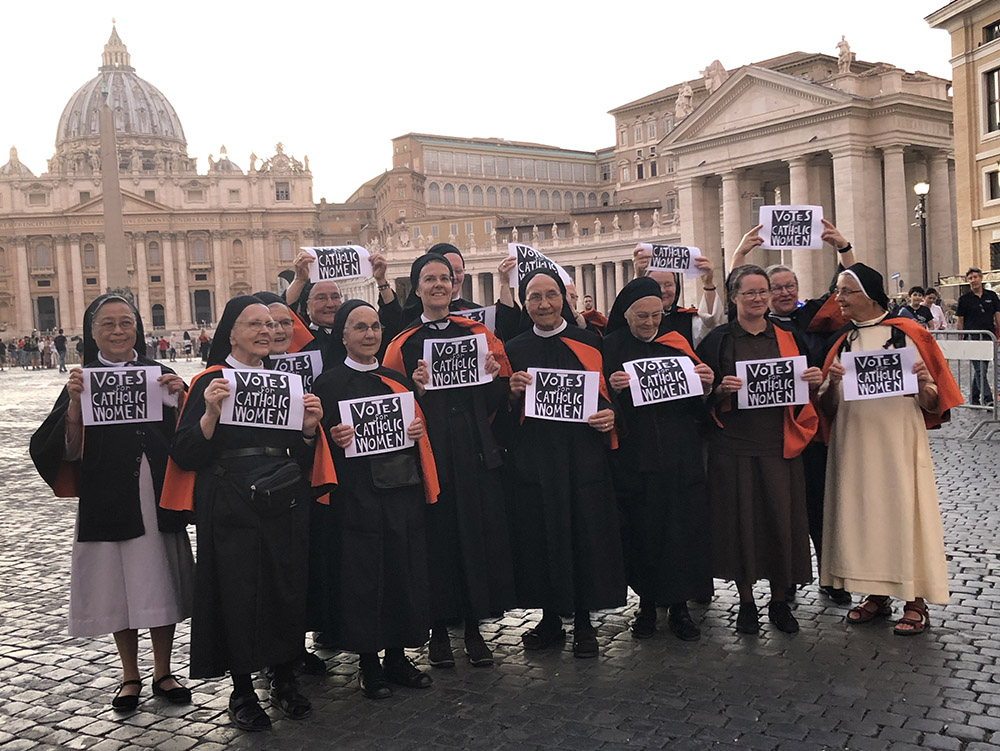
A group of Benedictine nuns from Fahr Monastery near Basel, Switzerland, call for "Votes for Catholic Women" at the Vatican during the October 2019 Synod of Bishops for the Amazon. (Deborah-Rose Milavec)
Theologians and Catholic Church reform groups are praising Pope Francis' decision to expand participation in the upcoming Synod of Bishops on synodality to include laypersons as full, voting members for the first time.
In NCR interviews after the Vatican's announcement of the change on April 26, several prominent experts characterized the move as a substantial development.
Natalia Imperatori-Lee, a theologian at Manhattan College, called the decision "very significant." She said the changes "make the synod more rooted in the nature of the people of God."
Richard Gaillardetz, a theologian at Boston College who has written extensively on the synod and the church's authority structures, said the move was "a quite notable ecclesiological development."
"For some time, many ecclesiologists, including me, have been complaining that we did not yet have an ecclesial institution capable of bearing the expectations that Pope Francis' vision of a synodal church brings," he said. "We are now much closer to that reality."
Sr. Maureen Geary, a Grand Rapids Dominican and president-elect of the Leadership Conference of Women Religious, which represents about two-thirds of the sisters and nuns in the United States, said the move feels both natural and momentous at the same time.
"Pope Francis is leading us to be a synodal church and it certainly feels like part of the process we’ve been embracing now for a couple of years," Geary said. "But it is also certainly a new moment."
The new changes foresee the participation of 70 nonbishop members at the Oct. 4-29 synod gathering at the Vatican, a number that is expected to be about 25% of the synod's total membership. Francis has asked that half of those nonordained members be women.
Also included in the changes is greater gender parity among the members of Catholic religious orders invited to take part in the synod. While historically 10 members of men's religious orders have been elected to participate, they will be replaced by five religious women and five religious men.
Sacred Heart Sr. Maria Cimperman highlighted the importance of the decision to equalize the participation of men and women religious in the synod.
In the past, she said, there were legitimate questions about why religious brothers not ordained as priests were allowed to vote at synods but sisters could only be observers. She said the changes will also force the church to discern all of the voices it needs to hear.
"This will represent a wider variety of the people of God," said Cimperman, director of the Center for the Study of Consecrated Life at Catholic Theological Union in Chicago. She was also part of a four-member panel that synthesized the responses of religious congregations to the synod.
Cimperman said that even though the changes are not changing Catholic doctrine, they are "expanding participation." She called the synodal process a spiritual journey examining how the entire church can live in community, and said including more voices is simply part of that process.
Imperatori-Lee said the new proportion of ordained and nonordained members would underscore to bishops that "they are first and foremost part of the people of God, not above or outside it."
Massimo Faggioli, a church historian and theologian at Villanova University, said the move would help the church as a whole more fully embody the concept of synodality. "It's not a revolution, but it is an evolution of the synod," he said.
However, Faggioli emphasized that the synod remains a consultative body, and that the pope is the final decision-maker on any issues it discusses. "This is not the beginning of a democratic church," he said.
He also expressed concern about one of the new changes: the elimination of the position of auditor, or issue experts who had been called to take part in previous synods as observers but not full members. He said that could change the dynamic of synod discussions.
"You are expected to follow a certain style and method in expressing your opinions if you are a member," Faggioli said. "Historically, if I look at the previous synods or the Second Vatican Council, experts have more freedom."
The Vatican's decision to include laywomen as full members in the synod comes after years of lobbying by church reform groups.
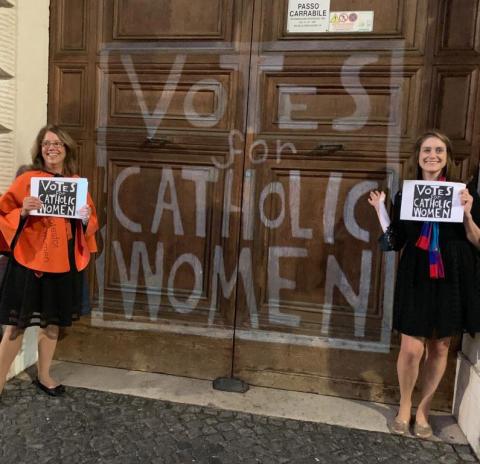
Deborah Rose-Milavec, left, and Kate McElwee pose in front of the doors of the Congregation for the Doctrine of the Faith at the Vatican with a projection saying, "Votes for Catholic Women," during the 2019 Synod of Bishops for the Amazon. (Provided photo)
In 2018, groups including FutureChurch and the Women's Ordination Conference organized a petition with nearly 10,000 signatures advocating that women religious superiors should be able to vote in synods. The Women's Ordination Conference also staged a peaceful protest outside that year's meeting of the synod, which was focused on young people.
"This is the result of sustained advocacy, activism and collaboration and witness from the grassroots," Kate McElwee, executive director of the Women's Ordination Conference, told NCR.
Deborah-Rose Milavec, co-director of FutureChurch, said: "I have a great sense of hope and see that this could really open the doors for lots of important conversations in the church that we haven't been able to have for several decades now."
Milavec said that she hoped that Francis' changes would open the door to future conversations about women's "full and equal participation in all aspects of church life" and better inclusion for LGBTQ+ persons.
"We will have people on the ground who experience the heartache of these things in a particular way, who will have a voice. At least that's the potential," she said.
"Pope Francis is taking very seriously the call to enlarge the tent," said Imperatori-Lee, but "there's still a ways to go in terms of how much more we could enlarge the tent."
The theologian raised the concern that there was no specific mechanism to ensure that laypeople who are not vowed religious would be adequately represented. "it's important to include people who are raising families," she said.
McElwee said that the Women's Ordination Conference will continue to work for full gender parity in the synod.
"We're hoping that over time and in the near future, the synodal assembly will resemble more closely the diversity of the people of God."
The announced changes left some questions unanswered.
Faggioli wondered if October's events could be properly called a Synod of Bishops with so many nonbishop members. "At this point, it's not clear if it's still a synod of bishops or a synod that should take another name," he said.
He also questioned whether the changes would apply in all future synods. "It's not entirely clear to me yet if these changes in the composition of the synod apply only to the synod on synodality."
Advertisement
Milavec expressed some concern about how the nonordained members of the synod would be chosen. "My fear is that this may be already kind of sewn up, or it's gonna happen very quickly," she said.
"The North American group needs to consult widely and make sure that they have diverse voices represented," she said. "That's women, that's LGBTQI people, that's Catholics of color, you know, those are disabled Catholics. The list goes on and on and on of people who have been excluded from this process for so long."
Gaillardetz also said "there is more work to be done" with regard to expanding participation in the synod.
"There is still a real danger that this more expanded membership will be stacked with 'safe' voices," he said. "Still, there is now no other ecclesial institution that bears as much promise for bringing the voices of the entire Christian faithful into the public processes for ecclesial discernment in service of church governance and decision-making."
Faggioli also wondered who would be selected. "We'll see what kind [of people will be selected], if they will be expert or if they will be average Catholics. But I think they have already drafted a list," he said.
"You'll have the power of choosing someone that you reasonably expect to get along with the program," he said of the pope's choice of nonbishop synodal members. "We will have to see how these women exercise their membership."
Geary, the Leadership Conference of Women Religious president-elect, said Francis is making it clear that you cannot have a synodal church while only listening to the voices of male clerics. "We certainly see the hand of the Holy Spirit throughout the whole process," she said.
[Global Sisters Report national correspondent Dan Stockman and NCR news editor Joshua J. McElwee, who is the spouse of Kate McElwee, contributed to this report.]
*This story has been updated to give proper credit to the photo of Sacred Heart Sr. Maria Cimperman.

